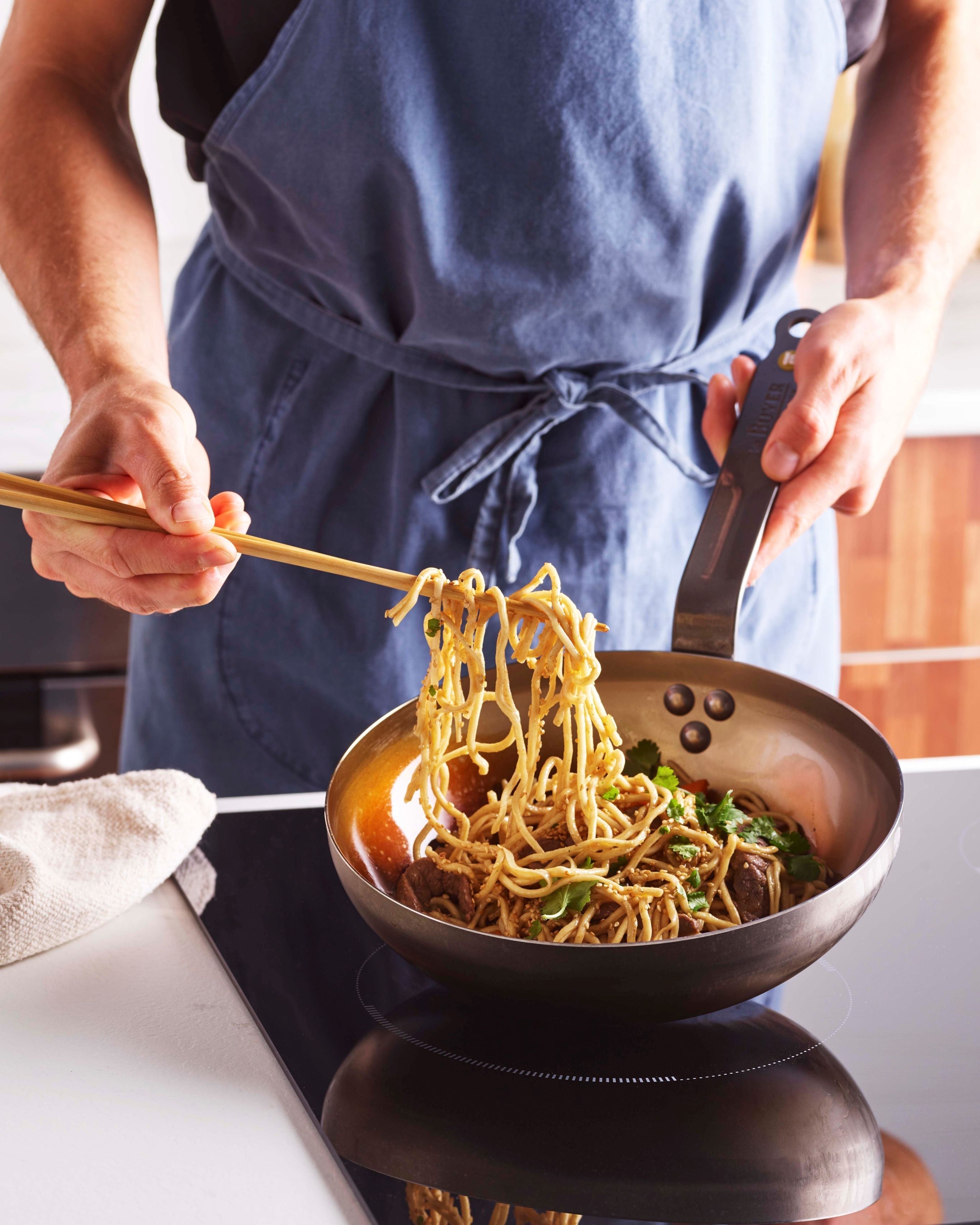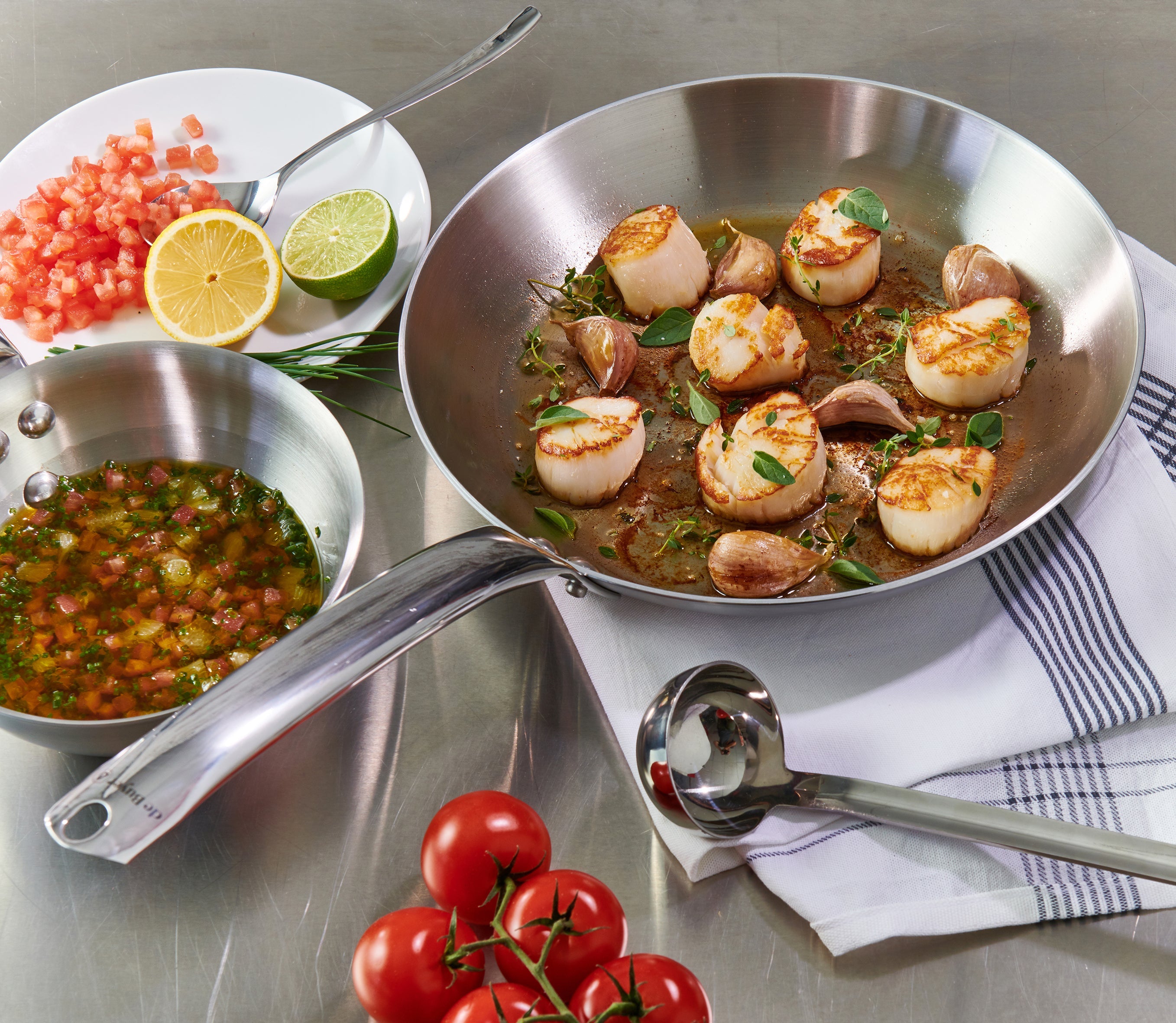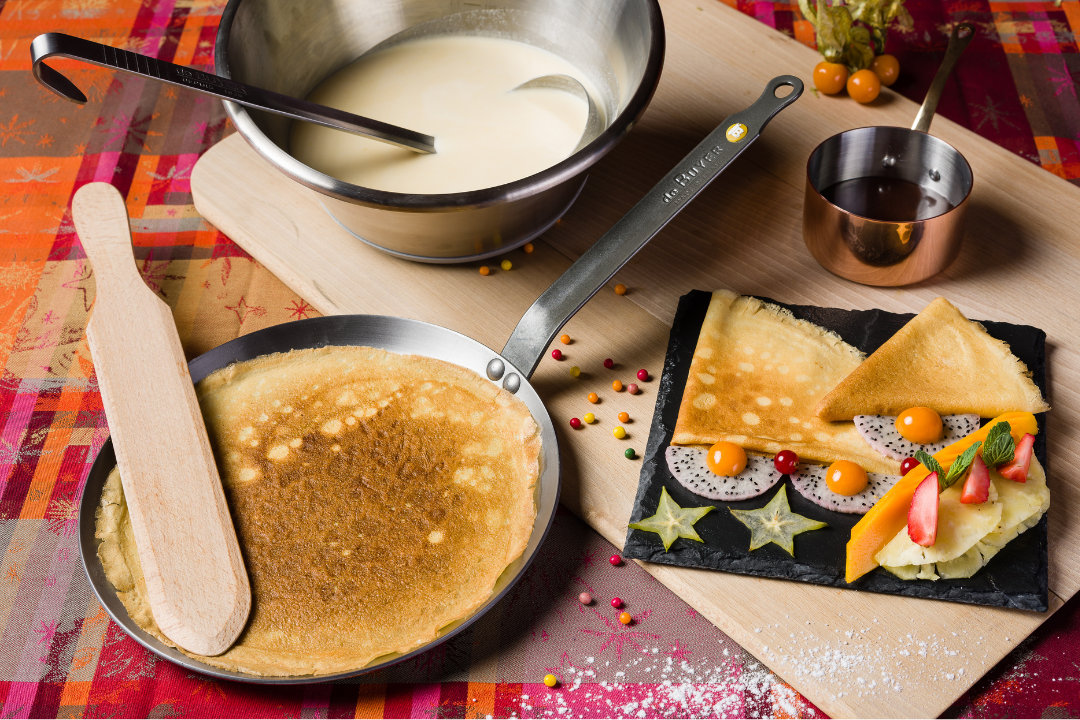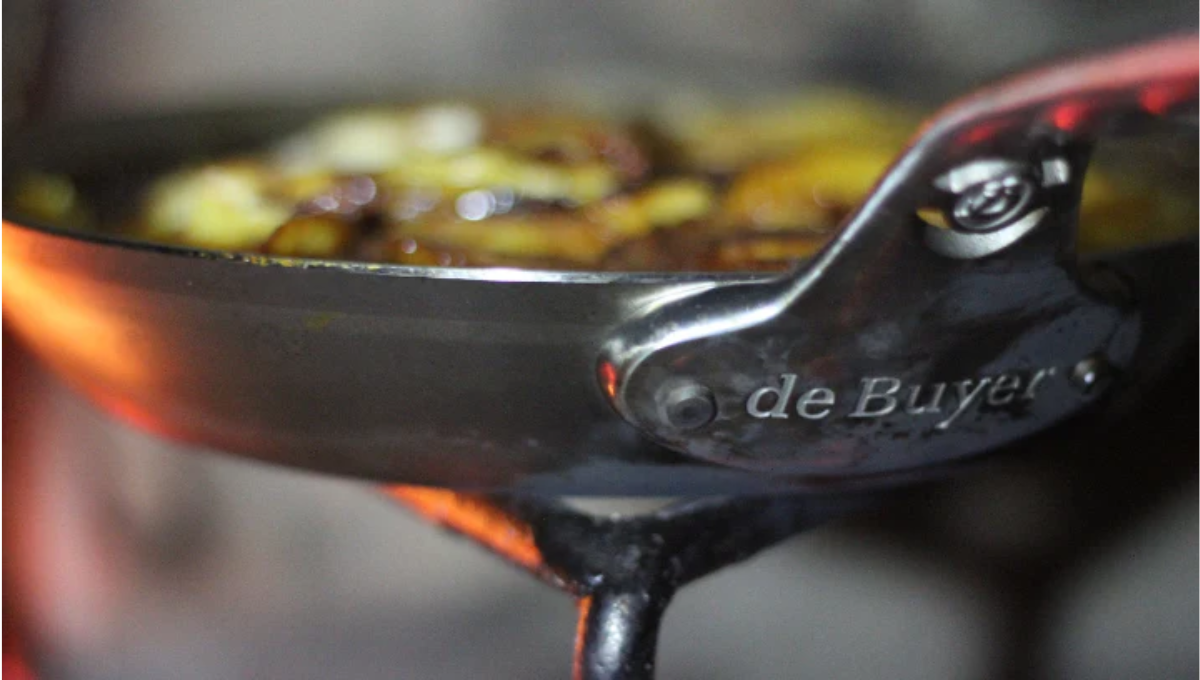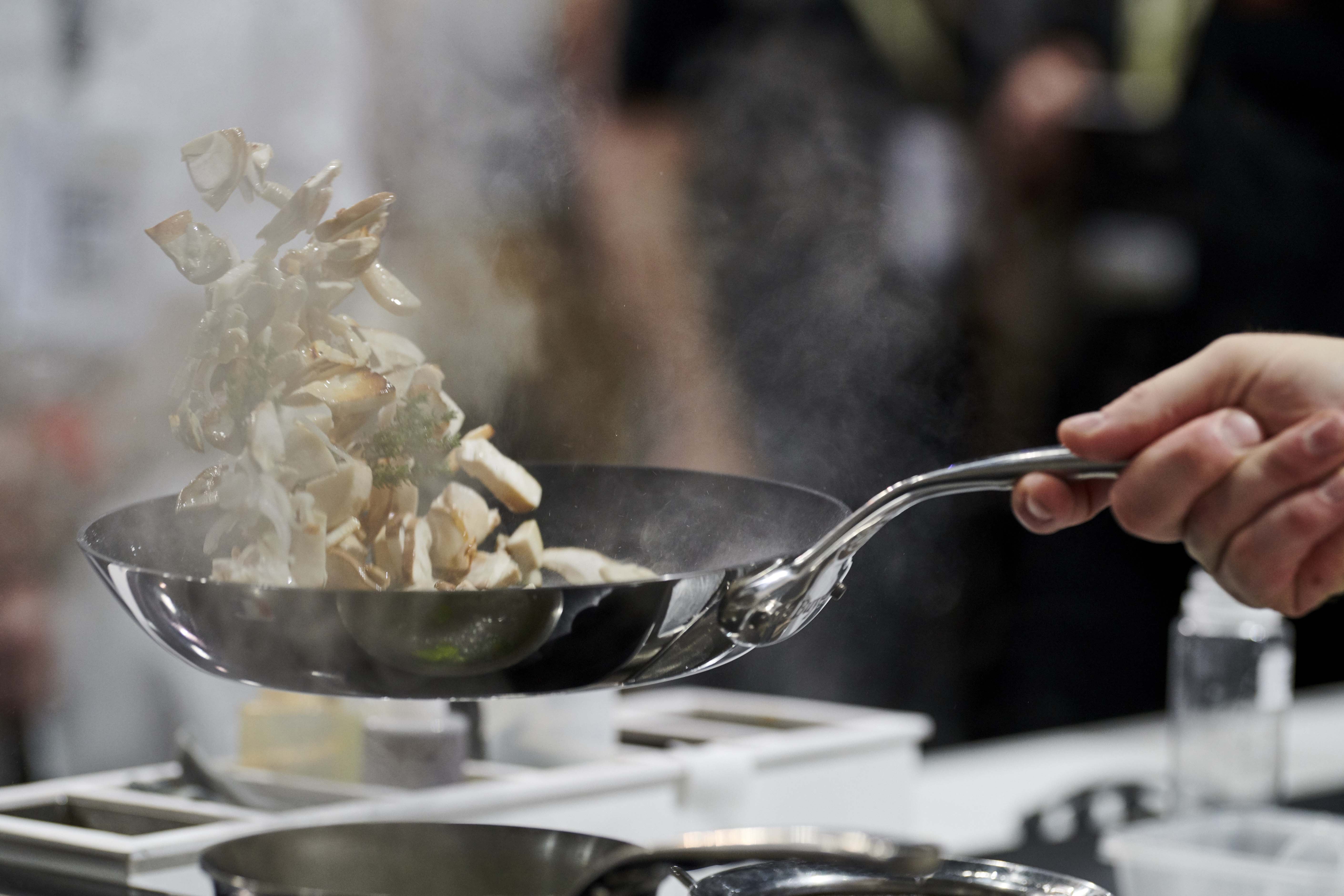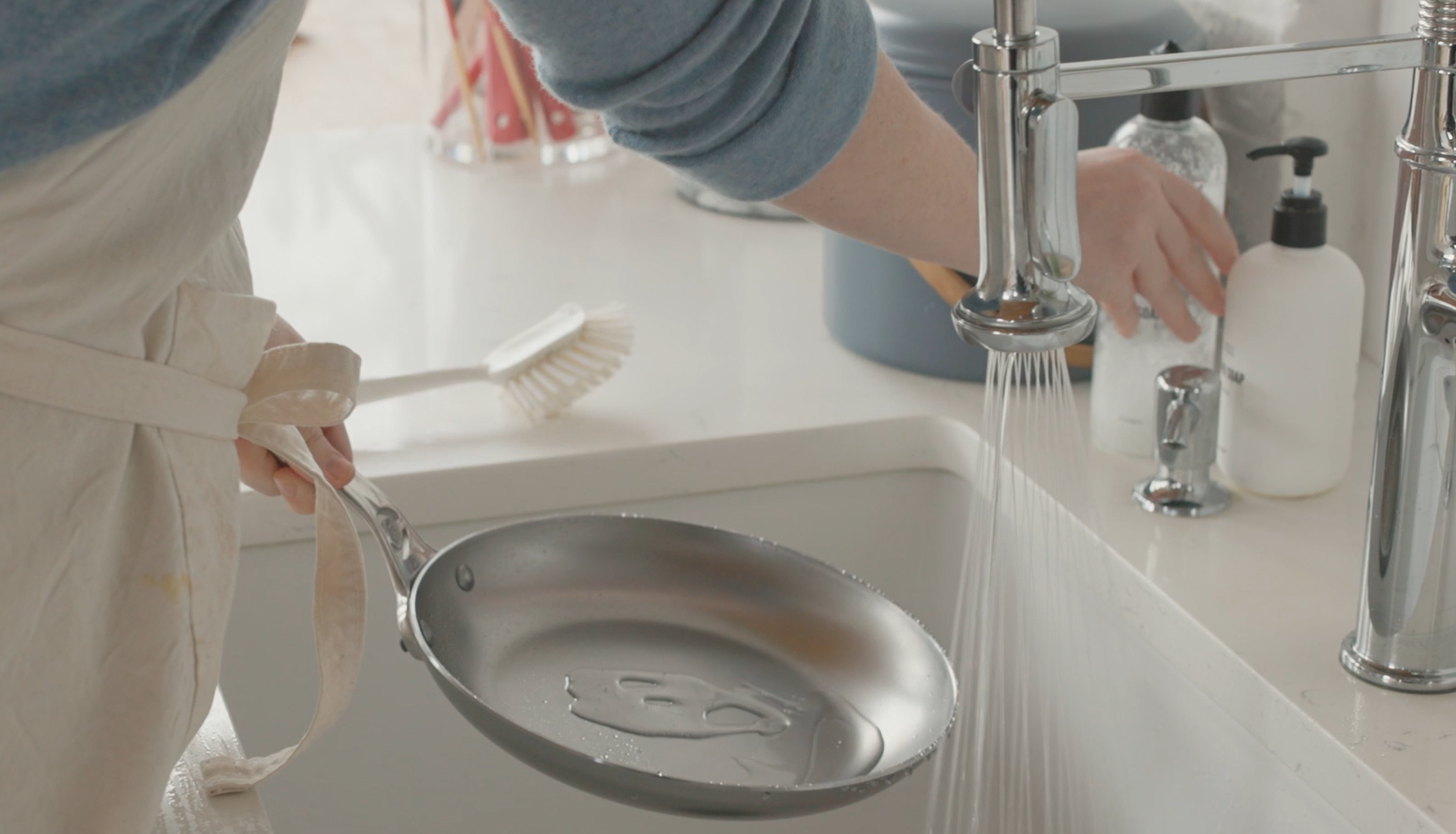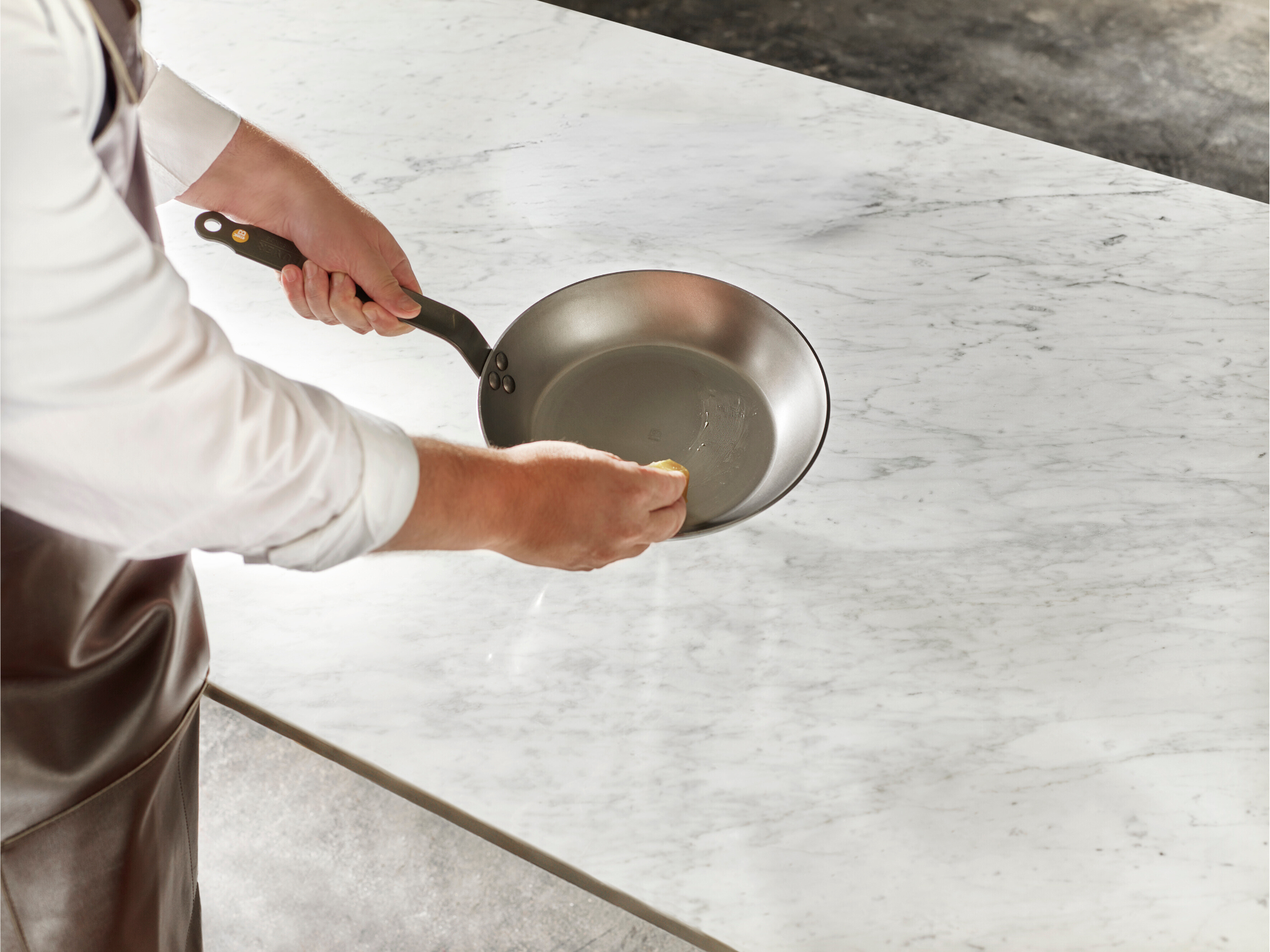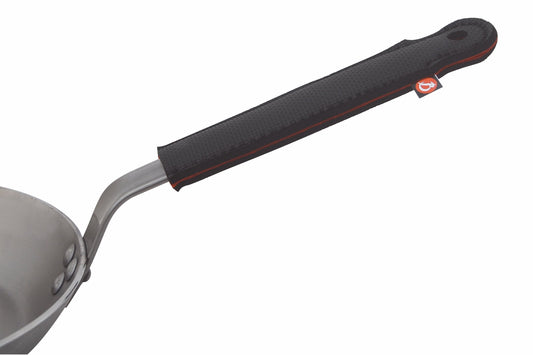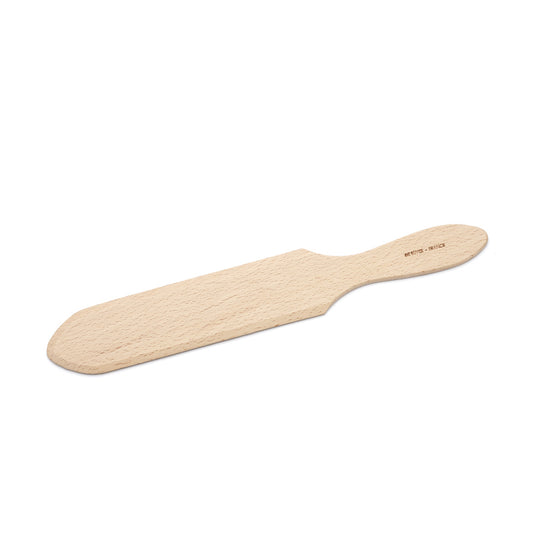How to Clean a Carbon Steel Wok the Right Way
Learn how to clean a wok the right way with step-by-step tips for daily care, rust removal, and seasoning maintenance—so your wok lasts a lifetime.
de Buyer
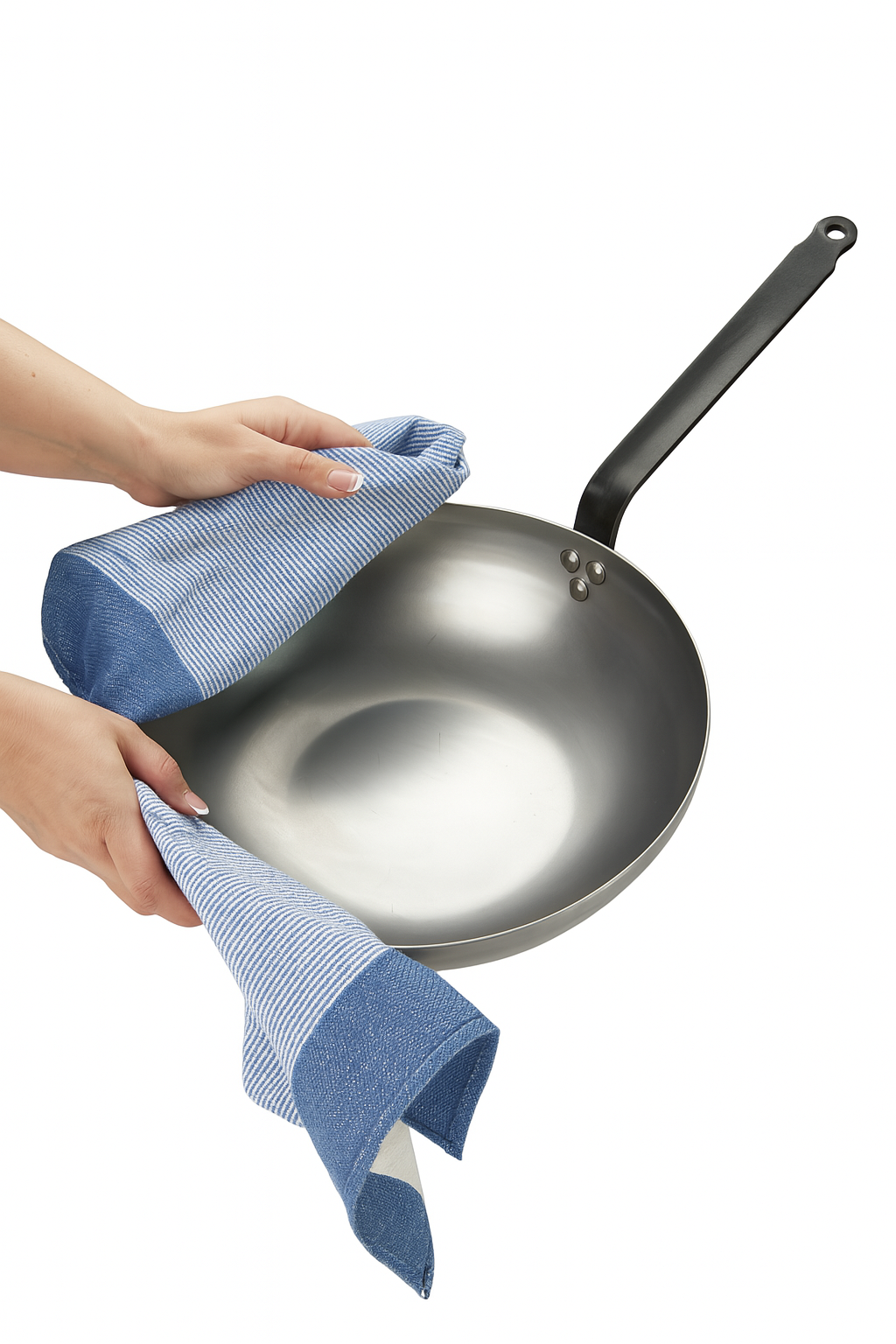
A carbon steel wok is more than a pan—it’s a cooking partner that evolves with every single use. As you stir-fry, sear, and pan-fry, you become a wok cooking expert with a strong, nonstick patina.
Proper care for a carbon steel wok isn’t complicated, but it is essential to maintain your new pan. de Buyer’s carbon steel woks are designed to last a lifetime when properly maintained. To help you master the wok cleaning process, this article will cover daily cleaning, deeper care, rust prevention, and seasoning upkeep.
Why Carbon Steel is Worth the Extra Care
Carbon steel isn’t like your regular aluminum pan. It’s special. This alloy is responsive to heat, has a natural nonstick surface, and improves with use and proper maintenance. This type of control, heat retention, and lasting nonstick feature isn’t possible with other nonstick pans.
Typical nonstick pans degrade over time. Even with proper care, their nonstick properties only last a few years. Meanwhile, carbon steel’s seasoning improves over time, becoming smoother and more effective with every use.
Caring for carbon steel isn’t a hassle—it’s a ritual. Each time you maintain it, you’re deepening your connection to the craft of cooking. With brands like de Buyer, that tradition of quality means your wok isn’t just a tool; it’s an heirloom in the making.
Step-by-Step: How to Clean Your Wok
Cleaning your wok correctly is less about elbow grease and more about respect for the chemistry that makes it work. Treat it right, and it'll last a lifetime. Follow these steps to protect the seasoning, avoid common mistakes, and keep your carbon steel in top shape.
1. Clean While the Wok is Still Hot
After cooking, let your wok cool slightly and then rinse with hot water. Warmth helps loosen food particles before they dry and cling to the surface of your pan. Use water that's hot but not scalding. Very hot water won't damage your wok, but it will damage your skin. Clean carefully.
2. Skip the Soap (mostly)
Contrary to popular belief, dish soap isn't your wok’s best friend. Because soap bonds to both water and oil, it will strip away your wok’s hard-earned seasoning (also called the patina). That seasoning is what gives your wok its nonstick quality and rich flavor development. If absolutely necessary, you can use a small drop of mild soap diluted in hot water, but only sparingly.
3. Scrub Gently
Use a soft sponge or brush to remove food residue. Avoid steel wool or anything too abrasive. It will scratch and remove bits of the seasoning layer.
4. Handle Stuck-On Food With Care
Pour in hot water and let the pan sit for a few minutes. Use a wooden spoon to gently lift stuck-on bits of food. Still stuck? Try a gentle salt scrub with a paper towel or soft sponge—no chemicals needed. We'll explain how to do a proper salt scrub in the next section.
5. Dry Immediately
Use a towel to thoroughly dry your wok, or place it upside down to air dry. This step is crucial in preventing rust.
6. Re-oil to Maintain Seasoning
Once dry, apply a thin layer of neutral oil (like canola oil or grapeseed oil) and wipe away any excess. This keeps the seasoning intact and builds protection over time.
Tip: Keep a dedicated towel for drying and oiling your wok.
7. Never Soak or Run Through the Dishwasher
Do not put your wok in the dishwasher or let it sit in water for hours. Both will ruin the seasoning and invite rust development.
What to Do if Your Wok Rusts or Loses Seasoning
Don’t panic. Rust happens even to the most accomplished chefs, and it’s an easy fix. Follow these steps to remove rust safely.
- Try a Salt Scrub: Sprinkle coarse salt directly onto the rusted area. Using a paper towel, gently scrub. The salt works as a mild abrasive to lift surface rust without damaging the pan.
- Use a Scouring Pad for Stubborn Rust: If rust persists, switch to a scouring pad, steel wool, or another coarse scrubbing tool. Apply steady pressure and work in small circles until the rust is gone.
- Apply a Vinegar Soak if Needed: Mix equal parts white vinegar and water, then soak the rusted area for 15–30 minutes. Once the rust softens, scrub it off. Dust the area with baking soda to neutralize the vinegar, rinse with water, and dry thoroughly. You may repeat if necessary.
Now that you’ve removed rust, it’s time to season your carbon steel wok. You need to apply a thin layer of oil to your wok and heat until the oil begins to smoke. Repeat this oil-and-heat cycle a few times to build a strong, nonstick patina.
Maintaining the Patina: Building Nonstick Performance
The patina is a layer that forms on the surface of your pan, caused by oxidation. It’s a natural phenomenon that protects your pan from the elements (such as rust) and gives it non-stick properties.
The patina forms on the topmost layer of your pan, and as you continue to season, this layer will get darker and darker. Don't panic; this is a good thing and a sign of a well-used, seasoned wok. Since the patina is only the topmost layer of your pan, it can be damaged, forcing you to start the seasoning process all over again.
Use these tips to avoid this issue and preserve your seasoning:
- Cook with a bit of oil
- Avoid acidic foods early on
- Don’t scrub too hard
Tools and Products Recommended for Wok Care
You’ll need ready access to running water and a stovetop and/or oven—both of which you should already have in your kitchen. Gather the following ingredients and tools, and keep them stocked:
- Wok brush
- Wooden spoon
- Soft cloths
- Paper towel
- Vinegar
- Baking soda
- Scouring pad (steel wool or another coarse scrubbing tool)
- Mild soap diluted in hot water
- High-smoke-point oil
You can find the wooden spoon and other needed cooking utensils on the de Buyer website.
Caring for Your Wok Is Caring for Your Craft
With each cleaning and seasoning, the wok becomes more uniquely yours and more protected. The better you take care of your wok, the longer it will serve you and the better it will perform. Embrace this care as a meaningful practice that enhances your dishes and showcases your dedication to your craft.
Explore de Buyer’s carbon steel woks and discover cookware that’s made to last a lifetime.
Learn More
Recommended for You
-
MINERAL B PRO Carbon Steel Fry Pan
Regular price $100.00Regular priceUnit price / per$0.00Sale price $100.00 -
MINERAL B Classic Carbon Steel Fry Pan
Regular price $65.00Regular priceUnit price / per -
MINERAL B Carbon Steel Omelette Pan
Regular price $75.00Regular priceUnit price / per -
MINERAL B PRO Carbon Steel Omelette Pan
Regular price $120.00Regular priceUnit price / per -
Protective Sleeve for Pan Handle
Regular price $12.50Regular priceUnit price / per -
MINERAL B Carbon Steel Crepe & Tortilla Pan
Regular price $65.00Regular priceUnit price / per -
Blue Carbon Steel Fry Pan
Regular price $50.00Regular priceUnit price / per -
Blue Carbon Steel Crepe & Tortilla Pan
Regular price $25.00Regular priceUnit price / per -
MINERAL B Carbon Steel Country Fry Pan
Regular price $110.00Regular priceUnit price / per -
MINERAL B Carbon Steel Egg & Pancake Pan
Regular price $40.00Regular priceUnit price / per -
Blue Carbon Steel Rectangular Baking Sheet
Regular price $40.00Regular priceUnit price / per -
B BOIS Crepe Spatula
Regular price $8.00Regular priceUnit price / per
